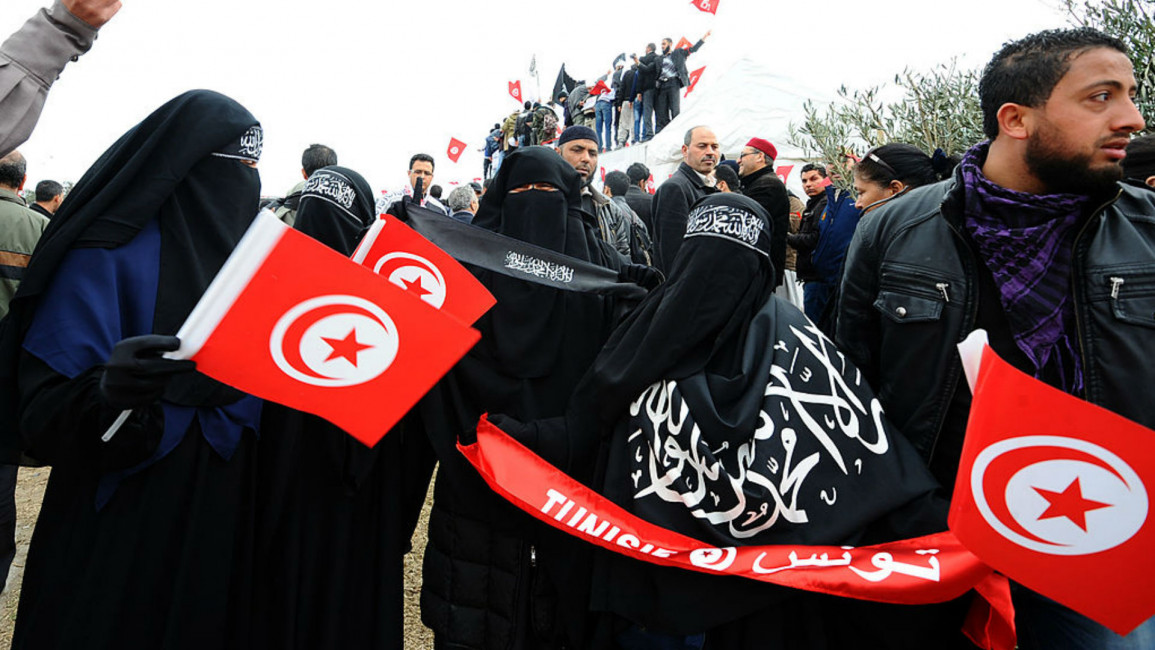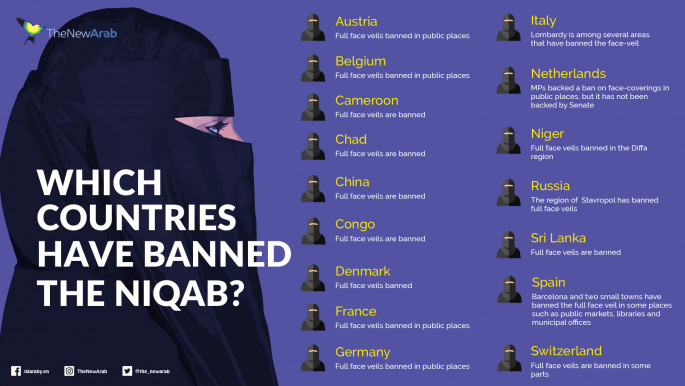Tunisia bans the face veil in public buildings following bombing
Tunisia bans the face veil in public buildings following bombing
The niqab will be banned from public offices in Tunisia.
1 min read
Tunisia banned the veil in public institutions on Friday [Getty]
Tunisia's prime minister announced on Friday that women will be banned from wearing the niqab inside state buildings, after a militant allegedly used a face veil as a disguise before detonating a bomb belt.
Prime Minister Youssef Chahed signed a notice "banning access to public administrations and institutions to anyone with their face covered... for security reasons", his office said on Friday.
It comes after double suicide bombings in Tunis on 27 June, which left two dead and seven wounded.
The wearing of the niqab and hijab are controversial subjects in Tunisia, where strict laws against outward expressions of Muslim religious identity were in place for decades.
Former presidents Zine El-Abidine Ben Ali and Habib Bourguiba clamped down on Islamic dress during their rule due to their strict secular ideologies.
After the 2011 revolution these laws were relaxed but in 2014 the interior ministry instructed police to step up supervision of the wearing of the niqab as part of anti-terrorism measures.
The Tunisian League for the Defence of Human Rights on Friday urged the government to repeal the nijab ban as soon as "a normal security situation returns in Tunisia".
There were calls for a ban on the niqab in 2015 following a series of bloody militant attacks on tourism sites and other targets.
Prime Minister Youssef Chahed signed a notice "banning access to public administrations and institutions to anyone with their face covered... for security reasons", his office said on Friday.
It comes after double suicide bombings in Tunis on 27 June, which left two dead and seven wounded.
The wearing of the niqab and hijab are controversial subjects in Tunisia, where strict laws against outward expressions of Muslim religious identity were in place for decades.
Former presidents Zine El-Abidine Ben Ali and Habib Bourguiba clamped down on Islamic dress during their rule due to their strict secular ideologies.
After the 2011 revolution these laws were relaxed but in 2014 the interior ministry instructed police to step up supervision of the wearing of the niqab as part of anti-terrorism measures.
The Tunisian League for the Defence of Human Rights on Friday urged the government to repeal the nijab ban as soon as "a normal security situation returns in Tunisia".
There were calls for a ban on the niqab in 2015 following a series of bloody militant attacks on tourism sites and other targets.




